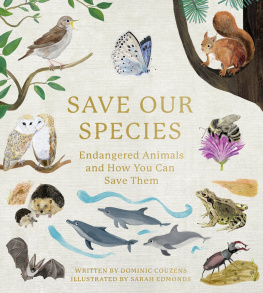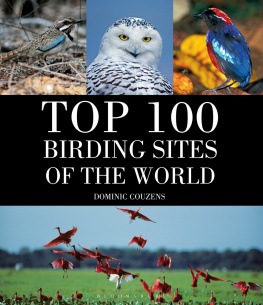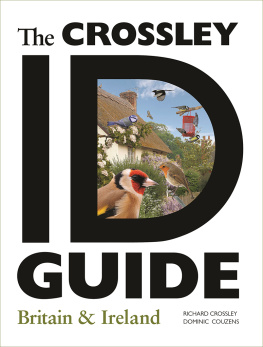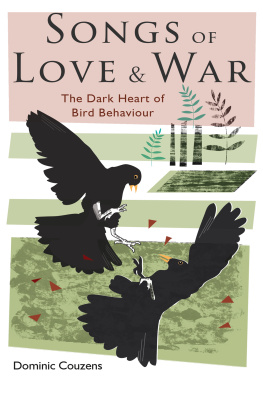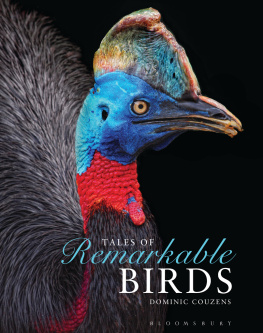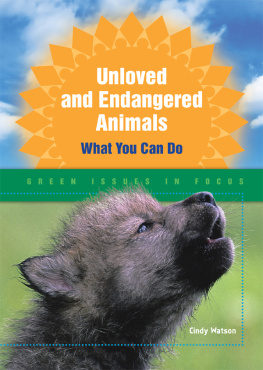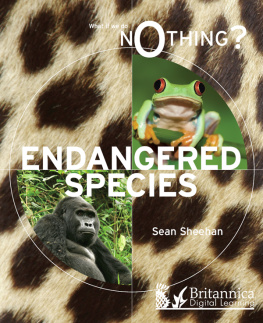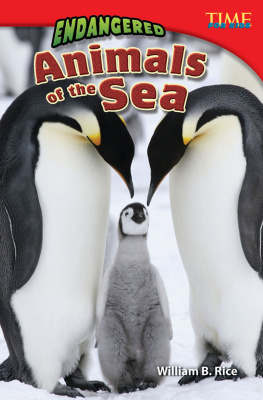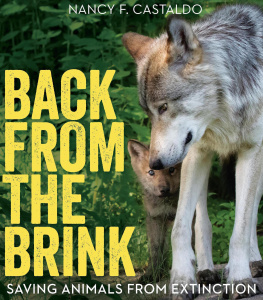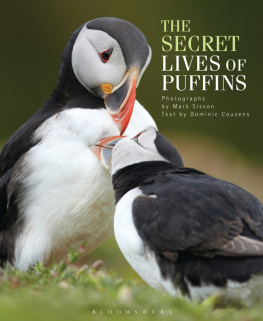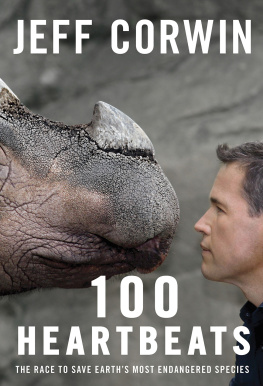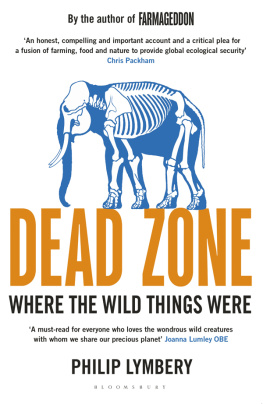Dominic Couzens - Save our species : endangered animals and how you can save them
Here you can read online Dominic Couzens - Save our species : endangered animals and how you can save them full text of the book (entire story) in english for free. Download pdf and epub, get meaning, cover and reviews about this ebook. year: 2021, genre: Romance novel. Description of the work, (preface) as well as reviews are available. Best literature library LitArk.com created for fans of good reading and offers a wide selection of genres:
Romance novel
Science fiction
Adventure
Detective
Science
History
Home and family
Prose
Art
Politics
Computer
Non-fiction
Religion
Business
Children
Humor
Choose a favorite category and find really read worthwhile books. Enjoy immersion in the world of imagination, feel the emotions of the characters or learn something new for yourself, make an fascinating discovery.
- Book:Save our species : endangered animals and how you can save them
- Author:
- Genre:
- Year:2021
- Rating:4 / 5
- Favourites:Add to favourites
- Your mark:
- 80
- 1
- 2
- 3
- 4
- 5
Save our species : endangered animals and how you can save them: summary, description and annotation
We offer to read an annotation, description, summary or preface (depends on what the author of the book "Save our species : endangered animals and how you can save them" wrote himself). If you haven't found the necessary information about the book — write in the comments, we will try to find it.
Save our species : endangered animals and how you can save them — read online for free the complete book (whole text) full work
Below is the text of the book, divided by pages. System saving the place of the last page read, allows you to conveniently read the book "Save our species : endangered animals and how you can save them" online for free, without having to search again every time where you left off. Put a bookmark, and you can go to the page where you finished reading at any time.
Font size:
Interval:
Bookmark:
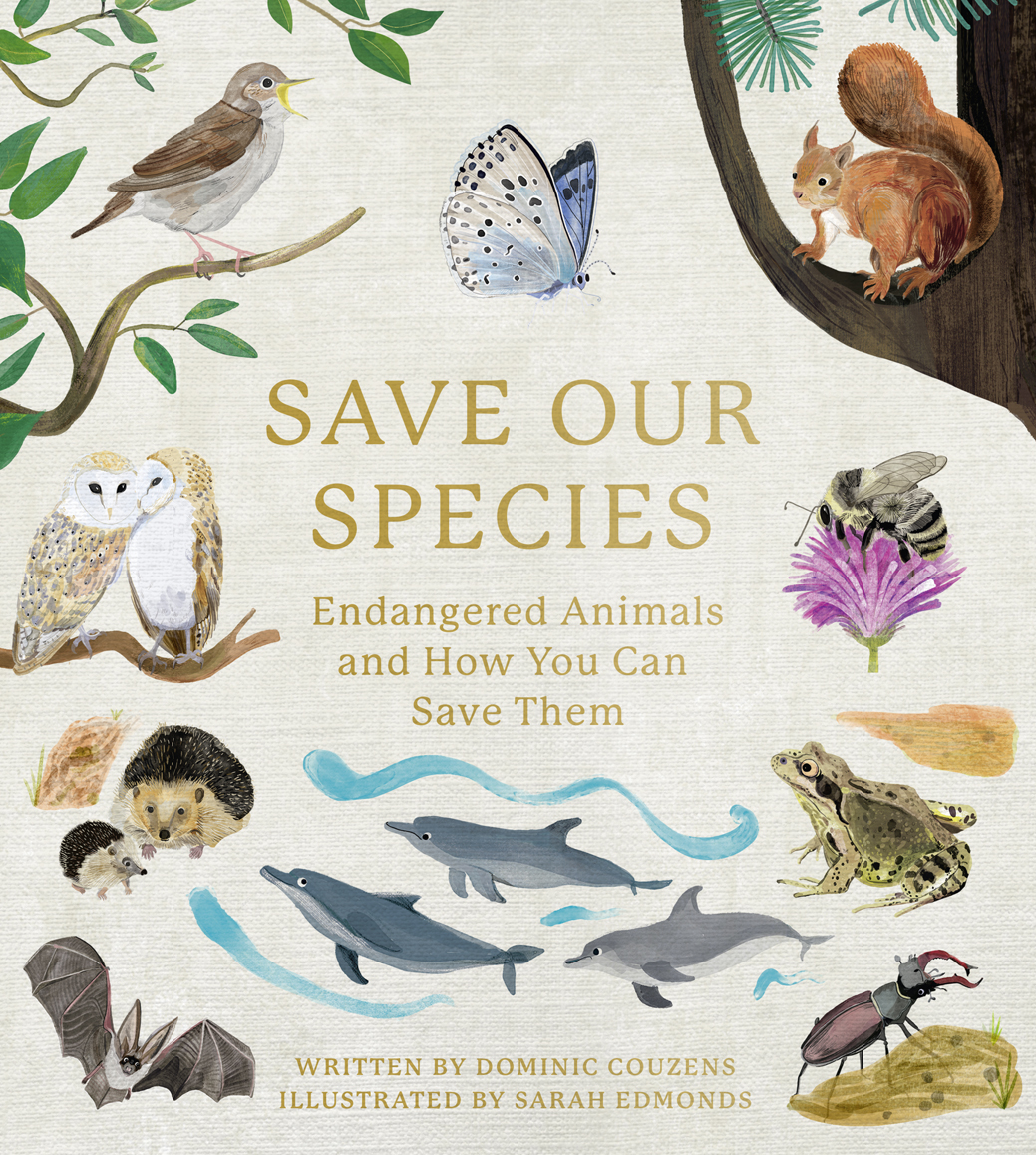
A Bird a Day
100 Birds to See in Your Lifetime
Wild and Free
Britains Mammals
Songs of Love and War
The British Wildlife Year
Extreme Animals
Top 100 Birding Sites of the World
Tales of Remarkable Birds
Birds: ID Insights
The Secret Lives of Puffins
The Crossley ID Guide, Britain and Ireland
A Patch Made in Heaven
Garden Bird Confidential
Atlas of Rare Birds
Extreme Birds
Secret Lives of Garden Wildlife
Secret Lives of British Birds
Secret Lives of Garden Birds
This ebook contains the following accessibility features which, if supported by your device, can be accessed via your ereader/accessibility settings:
- Change of font size and line height
- Change of background and font colours
- Change of font
- Change justification
- Text to speech
- Page numbers taken from the following print edition: ISBN 9780008438616
HarperCollinsPublishers
1 London Bridge Street
London SE1 9GF
www.harpercollins.co.uk
HarperCollinsPublishers
1st Floor, Watermarque Building, Ringsend Road
Dublin 4, Ireland
First published by HarperCollinsPublishers 2021
FIRST EDITION
Text HarperCollinsPublishers 2021
Illustrations Sarah Edmonds 2021
Cover design Sim Greenaway HarperCollinsPublishers Ltd 2021
Cover illustrations Sarah Edmonds 2021
A catalogue record of this book is available from the British Library
Dominic Couzens asserts the moral right to be identified as the author of this work
All rights reserved under International and Pan-American Copyright Conventions. By payment of the required fees, you have been granted the nonexclusive, non-transferable right to access and read the text of this e-book on screen. No part of this text may be reproduced, transmitted, downloaded, decompiled, reverse engineered, or stored in or introduced into any information storage retrieval system, in any form or by any means, whether electronic or mechanical, now known or here in after invented, without the express written permission of HarperCollins e-books.
Find out about HarperCollins and the environment at www.harpercollins.co.uk/green
Source ISBN: 9780008438616
Ebook Edition April 2021 ISBN: 9780008438623
Version 2021-03-08
Britains nature is in serious trouble. Thanks for being part of the solution. You care about nature, and that is incredibly important. Our wildlife needs you on board desperately. With enough people on its side, nature in this country has a chance to thrive again.
Nature can be resurgent if we let it happen. It requires political will and action but, more than anything, nature needs advocates, people who care about the issues and want solutions. Nature needs serious, knowledgeable people who know that they will lose some battles but can also gain ground. The UK will never return to its primal state, full of vast tracts of unsettled wilderness and hardly any people. But some areas can be rewilded; it even makes economic sense to do so. And a great deal can be done to ameliorate the destruction of our wildlife, which, particularly since the 1950s and 1960s, has been horrendous.
This book is designed to play a role, however small, in that process. It contains the stories of 30 animals and plants that have declined in our country, setting out the reasons why they are in trouble. But it also makes suggestions as to how we can help the species.
It also presents ideas about how you and I can help wildlife in general, starting now. A lot of these, surprisingly but encouragingly, start in gardens and neighbourhoods. Many people dont realise how important their personal contributions are. They are important because they signify a person won over. If enough people are won over, and convinced that their voice can be heard, conservation can still do great things.
First, though, we need to get an idea of the problems.
Our countrys biodiversity is falling rapidly, by almost every measure. Each year, a partnership of more than 50 conservation and research organisations brings out a report called State of Nature, and the most recent version makes typically grim reading:
- The total number of breeding birds in the UK fell by 44 million between 1967 and 2009.
- The abundance of butterflies in Britain has shrunk by 16% since 1976 and the abundance of moths has fallen by 25% since 1970.
- A sample of 696 typical terrestrial and freshwater species of all kinds shows a decline in average abundance of 13% since 1970; even more alarmingly, the same sample shows a 6% decline in the last ten years alone.
- A measure of species for which there are reliable population criteria, totalling 8,431 in all, suggests that, of these, 1,188 (15%) are threatened with extinction from Great Britain, while 2% have gone already.
Within these complex figures are many individual stories. For example, skylarks have declined by over 75% since the 1950s and hedgehogs could be down 90%. Some species have increased, of course, such as red kites, bitterns and pine martens. But what really stands out is the number of familiar species that have suddenly dropped and are in danger of becoming history. This is where the damage to our wildlife becomes personal. Those of us who love listening to the glorious songs of skylarks and the chirping of sparrows cannot bear to think that their world and ours is now so diminished.
There is barely a corner of Britain, or a type of habitat, excluded from the grim tally. In Britain, all manner of wildlife-rich habitats have been lost to development, not just recently but for centuries. Chalk downlands, heaths, bogs, freshwater marshes, seacoasts, estuaries, Caledonian pine forests and meadows are all examples of habitats that have shrunk vastly in area as human reach and exploitation has expanded. We have, for example, lost 97% of our flower-rich meadows since the 1930s.
It could be suggested that development for housing and industry was the biggest driver of destruction up to the war years. But since then, a newer crisis has emerged on Britains farmland, which covers 70% of our surface area. Farmland was once a good habitat for many birds, invertebrates, flowers and much else, animals and plants benefiting from a share of production and space. But spurred by the need to produce more food, farms became much more efficient and intensive. Hedgerows were grubbed up (c.50% of pre-war levels remains), ponds drained, corners evened out, stubbles removed. The soil was subjected to a barrage of chemicals, and still is. There was a wide switch from spring to autumn sowing. Everything became cleaner and more efficient, but at a terrible cost to biodiversity.
At the same time, there has been industrial-scale persecution of wildlife. Predators were culled in enormous numbers, fish stocks were depleted, and animals and plants abused. Gardening followed farming into a weird type of intensification, with tidiness in vogue and perfection a sort of creed. Other ills the environment suffered included pollution, changes in hydrology, the introduction of harmful non-native species and, more recently, the creep of climate change.
Font size:
Interval:
Bookmark:
Similar books «Save our species : endangered animals and how you can save them»
Look at similar books to Save our species : endangered animals and how you can save them. We have selected literature similar in name and meaning in the hope of providing readers with more options to find new, interesting, not yet read works.
Discussion, reviews of the book Save our species : endangered animals and how you can save them and just readers' own opinions. Leave your comments, write what you think about the work, its meaning or the main characters. Specify what exactly you liked and what you didn't like, and why you think so.

